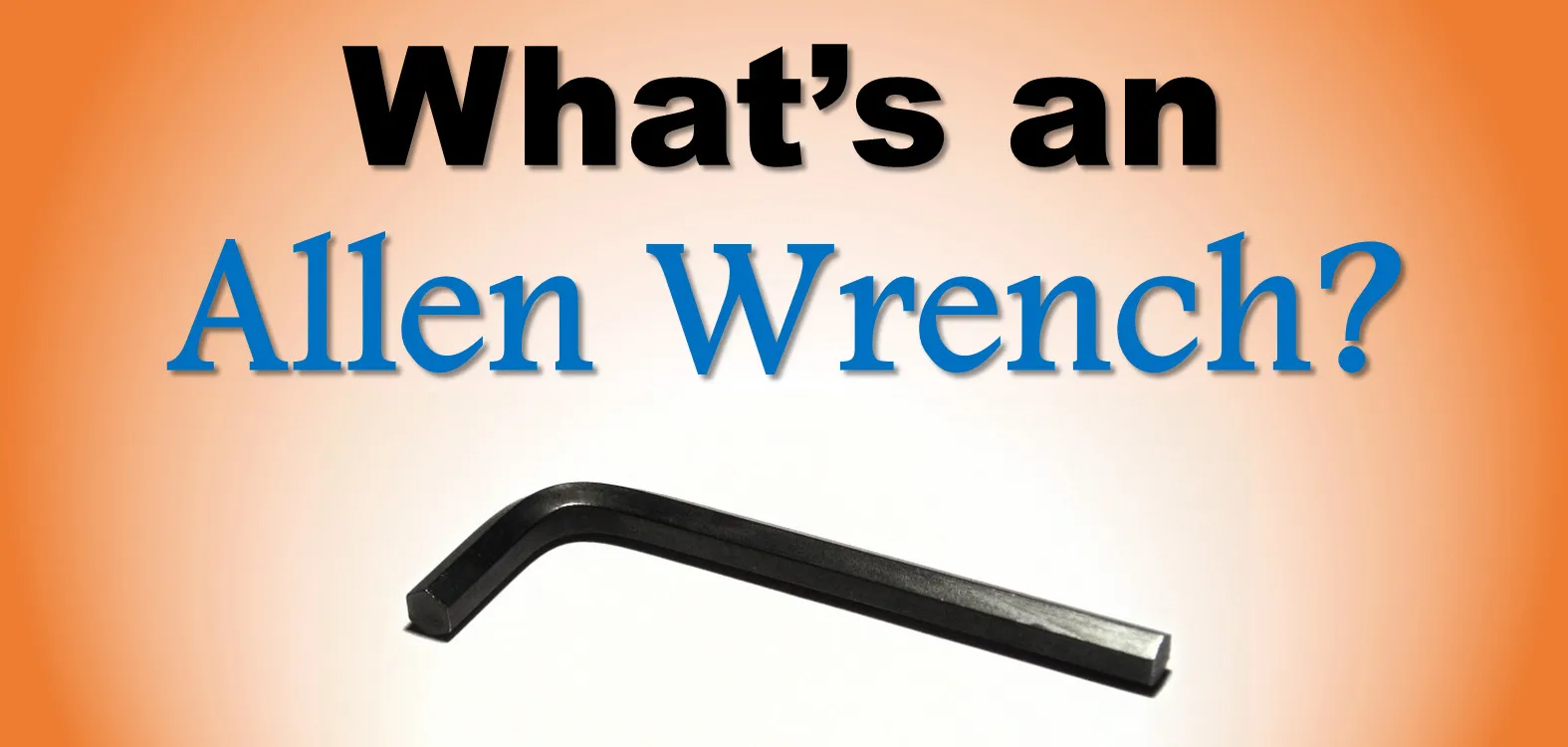The Allen Wrench, also known as a Hex Key, is an essential tool for both professionals and DIY enthusiasts. Its simple yet efficient design has made it a staple in countless industries, from furniture assembly to automotive repair. Whether you’re tightening screws on a bicycle or assembling flat-pack furniture, understanding how to choose, use, and maintain an Allen Wrench can greatly enhance your work efficiency and safety.
Understanding the Allen Wrench
What Is an Allen Wrench?
Definition and Description
An Allen Wrench is a small, L-shaped or T-shaped tool used to drive screws and bolts with a hexagonal socket. Its distinctive shape allows it to fit into hexagonal recesses, providing a secure grip and torque for various fastening jobs. The design typically consists of a long arm for leverage and a shorter arm for turning, optimizing torque application and ease of use.
Material Composition
Most Allen Wrenches are made from steel, alloy, or other corrosion-resistant materials to withstand heavy torque and prevent rust. High-strength steel, such as chrome-vanadium steel, is common for durable and long-lasting tools. Light-duty or specific applications may utilize nylon or plastic versions, though these are less common and suited for less demanding tasks.
Size Measurement
Sizes are typically marked in metric (millimeters) or imperial (inches) measurements. It’s crucial to select the correct size that matches the socket screw or bolt head to prevent cam-out or damage. For example, a 3mm Allen Wrench fits screws with a 3mm hex socket, ensuring a precise fit.
How the Allen Wrench Works
Mechanism of Torque Application
The Allen Wrench leverages a simple mechanical advantage. When inserted into a hexagonal screw, turning the wrench applies torque directly to the fastener. The L-shape provides sufficient leverage to loosen or tighten the screw with minimal effort.
Fitment with Hexagonal Socket Screws
Designed to fit snugly within the hex socket of screws or bolts, the Allen Wrench minimizes slippage (cam-out), unlike flat-head screwdrivers. This secure fit allows for greater torque and precision, reducing the risk of damaging the fastener.
Advantages Over Other Screwdrivers
Compared to flathead or Phillips screwdrivers, the Allen Wrench offers an advantage in tight spaces and for fasteners with hexagonal sockets. Its compact design, durability, and ability to apply high torque make it superior in specific applications.
Types of Allen Wrenches
Fixed vs. Foldable Sets
Single-Piece Allen Wrenches
Consist of a single, solid tool without any folding mechanism. These are durable and reliable, ideal for specific sizes you regularly use. They are straightforward, often cheaper, and easier to store.
Foldable Sets
These sets include multiple sizes of Allen Wrenches in a compact, foldable holder. They are especially useful for those who need various sizes on the go, such as bicycle mechanics or technicians. The portability and variety make these sets a popular choice for amateurs and professionals alike.
Material Variations
Steel and Chrome-Vanadium Steel
Offering high durability and strength, these are the most common materials for heavy-duty applications. Chrome-vanadium steel provides excellent hardness and corrosion resistance.
Nylon or Plastic Versions
Designed for light-duty tasks, these versions are inexpensive and less prone to causing damage if misused. They are best suited for electronics or delicate assembly work where metal tools might be too aggressive.
Design Variations
T-Handle Allen Wrenches
Feature a T-shaped handle for increased grip and torque. Perfect when working with larger fasteners requiring more force.
Ball-End Allen Wrenches
The ball end allows the user to turn bolts at an angle, often up to 30- or 25-degree increments. This flexibility is ideal for hard-to-reach areas.
Long Arm vs. Short Arm Wrenches
Long arm versions provide extra leverage for tight or stubborn fasteners, while short arm types are more maneuverable in confined spaces.
Choosing the Right Allen Wrench
Size Compatibility
Measuring Screw Head Size
Identify the correct size by measuring the screw’s hex socket or using a size guide. Proper fit prevents stripping the screw head and ensures efficient work.
Using Metric vs. Imperial Sizes
Match the wrench to the fastener’s size system. Many tools and fasteners are now available in both, so verify before purchasing or using.
Material and Strength
Application Considerations
For heavy-duty or industrial use, opt for high-grade steel or chrome-vanadium options. For light household tasks, plastic or nylon versions may suffice.
Durability and Corrosion Resistance
Tools exposed to moisture should be made of rust-resistant materials to extend lifespan and maintain performance.
Ease of Use and Comfort
Handle Design
Handles with ergonomic design and T-shapes facilitate a firm grip and better torque application. Some models include rubberized coatings for comfort.
T-Handle vs. Standard L-Shape
The T-handle offers more torque and comfort, while the standard L-shape provides portability and precision in tight corners.
Sets vs. Single Wrench
Sets are advantageous for variety and future expansion, especially for professionals. However, buying specific sizes tailored to your needs can be more cost-effective for occasional users.
Applications of Allen Wrenches
Furniture Assembly
Flat-Pack Furniture
Most Allen Wrenchs are included in furniture kits like those from IKEA. They are essential for tightening screws securely and efficiently.
Cabinets and Appliances
Many household appliances and cabinets use hex screws for assembly. Having the right Allen Wrench simplifies maintenance and repairs.
Bicycle Maintenance
Adjustments and Repairs
Bikes often utilize Allen bolts for stem adjustments, brakes, and derailleurs. Proper tools ensure safety and performance.
Common Bolt Types
Size and quality vary depending on the bike model, making it important to use a suitable Allen Wrench.
Mechanical and Automotive Uses
Engine Components
Many automotive parts, especially in engines, rely on hex screws tightened with Allen Wrenches for precision assembly.
Machinery Assembly
Industrial equipment often incorporates Allen screws, benefiting from the wrench’s high torque capacity.
Electronics and Appliances
Small Fasteners in Gadgets
Electronics like smartphones, laptops, and appliances frequently use tiny screws accessible with small Allen Wrenches.
Consumer Electronics Repair
Having a set of precision Allen Wrenches can save time and prevent damage during repairs.
Proper Use and Maintenance of Allen Wrenches
Correct Technique
Applying Appropriate Torque
Over-tightening can strip screws; apply steady, moderate force. Use a torque wrench if necessary for precision tasks.
Avoiding Stripping Screws
Ensure the wrench fits snugly and avoid using excessive force or misaligned tools, which can damage both fastener and tool.
Fitting the Wrench Securely
Always insert the Allen Wrench fully into the screw’s socket before turning to prevent slippage and rounding the corners of the screw head.
Maintenance of Allen Wrenches
Keeping Tools Clean and Rust-Free
Wipe tools after use and store in a dry place. Applying a light coat of oil can prevent rusting, especially for steel versions.
Storage Tips
Use a dedicated toolbox or organizer to prevent loss and damage. Many foldable sets come with protective cases for easy storage.
Periodic Replacement of Worn Tools
Inspect regularly for signs of wear, such as rounded edges. Worn tools can damage fasteners or become unsafe to use.
Advantages of Using Allen Wrenches
- Compact and portable: Easy to carry in pockets or toolkits.
- High torque with minimal slipping: Efficient for stubborn fasteners.
- Perfect design for tight spaces: Enables access where larger tools cannot.
Common Problems and Troubleshooting
Stripped Hex Screws
Cause: Excessive force, improper fit. Solution: Use a slightly larger size or specialized grip tools. Preventative: Always match the exact size and avoid over-torquing.
Wrench Slipping Out
Cause: Worn or loose fit. Solution: Replace worn tools or ensure proper fitment. Preventative: Inspect tools regularly and use quality brands.
Wrench Bending or Breaking
Cause: Excessive force beyond material capacity. Solution: Use a wrench with appropriate strength, such as steel variants. Preventative: Apply steady, moderate torque.
Innovations and Future Trends
- Ergonomic Handle Designs: Enhancing comfort and torque efficiency, reducing hand fatigue.
- Material Advancements: Incorporation of new composites or coatings for better strength and corrosion resistance.
- Precision Manufacturing: Ensuring better fit and reduced wear, improving tool longevity.
Summary Table of Key Features of Allen Wrenches
| Feature | Description | Best for |
|---|---|---|
| Material | Steel, chrome-vanadium, plastic | Heavy-duty or light-duty |
| Shape | L-shaped, T-shaped, ball-ended | Leverage, comfort, access angles |
| Size | Metric and imperial | Matching screw dimensions |
| Design | Fixed, foldable, T-handle, long/short arm | Convenience, torque requirements |
| Application | Furniture, bicycles, electronics, machinery | Versatile use across industries |
Frequently Asked Questions about Allen Wrenches
- What is the standard size range of Allen Wrenches?
- Most sets include sizes ranging from 1.5mm to 10mm or 1/16 inch to 3/8 inch.
- Can I use an Allen Wrench on Phillips screws?
- No, Allen Wrenches are designed specifically for hexagonal sockets. Use a Phillips screwdriver for Phillips screws.
- How do I prevent Allen Wrenches from slipping out of screws?
- Ensure proper fit, avoid over-tightening, and use quality tools with a secure grip.
- Are there safety tips when using Allen Wrenches?
- Always wear eye protection, apply force gradually, and avoid using damaged tools.
- What is the best material for Allen Wrenches for heavy-duty work?
- High-grade chrome-vanadium steel offers excellent strength and durability.
- How should I store Allen Wrenches?
- Keep them in a dry, organized toolbox or a dedicated case to prevent loss and corrosion.
- Can Allen Wrenches be used for electrical or delicate work?
- Yes, nylon or plastic versions are suitable for light, delicate tasks where metal might cause damage.
With the right knowledge and tools, mastering the Allen Wrench can make a significant difference in many repair, assembly, and maintenance projects. Investing in quality tools, understanding their proper use, and practicing safety will ensure efficient and safe work in a variety of applications.





